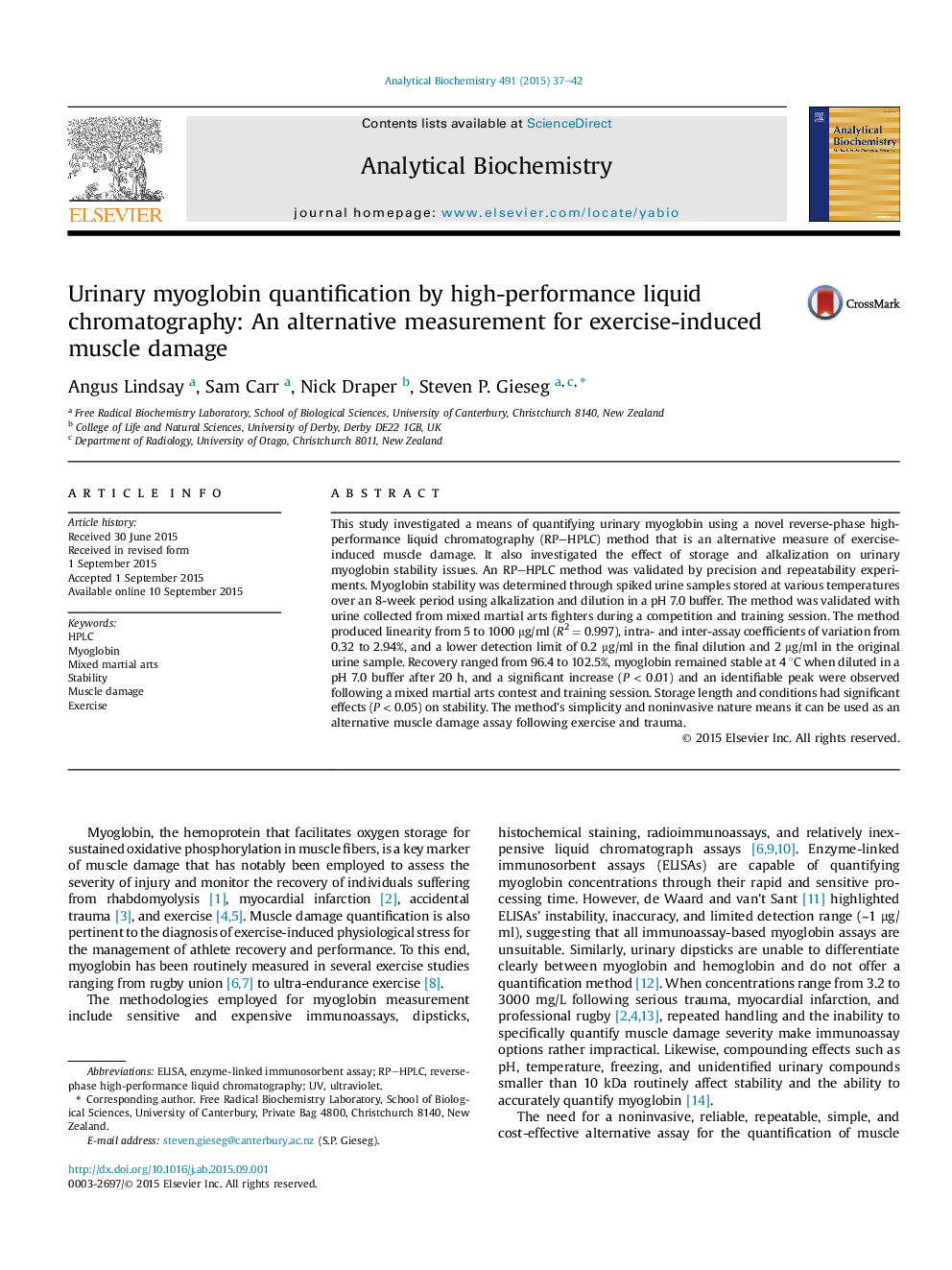| Article ID | Journal | Published Year | Pages | File Type |
|---|---|---|---|---|
| 1173026 | Analytical Biochemistry | 2015 | 6 Pages |
Abstract
This study investigated a means of quantifying urinary myoglobin using a novel reverse-phase high-performance liquid chromatography (RP-HPLC) method that is an alternative measure of exercise-induced muscle damage. It also investigated the effect of storage and alkalization on urinary myoglobin stability issues. An RP-HPLC method was validated by precision and repeatability experiments. Myoglobin stability was determined through spiked urine samples stored at various temperatures over an 8-week period using alkalization and dilution in a pH 7.0 buffer. The method was validated with urine collected from mixed martial arts fighters during a competition and training session. The method produced linearity from 5 to 1000 μg/ml (R2 = 0.997), intra- and inter-assay coefficients of variation from 0.32 to 2.94%, and a lower detection limit of 0.2 μg/ml in the final dilution and 2 μg/ml in the original urine sample. Recovery ranged from 96.4 to 102.5%, myoglobin remained stable at 4 °C when diluted in a pH 7.0 buffer after 20 h, and a significant increase (P < 0.01) and an identifiable peak were observed following a mixed martial arts contest and training session. Storage length and conditions had significant effects (P < 0.05) on stability. The method's simplicity and noninvasive nature means it can be used as an alternative muscle damage assay following exercise and trauma.
Keywords
Related Topics
Physical Sciences and Engineering
Chemistry
Analytical Chemistry
Authors
Angus Lindsay, Sam Carr, Nick Draper, Steven P. Gieseg,
